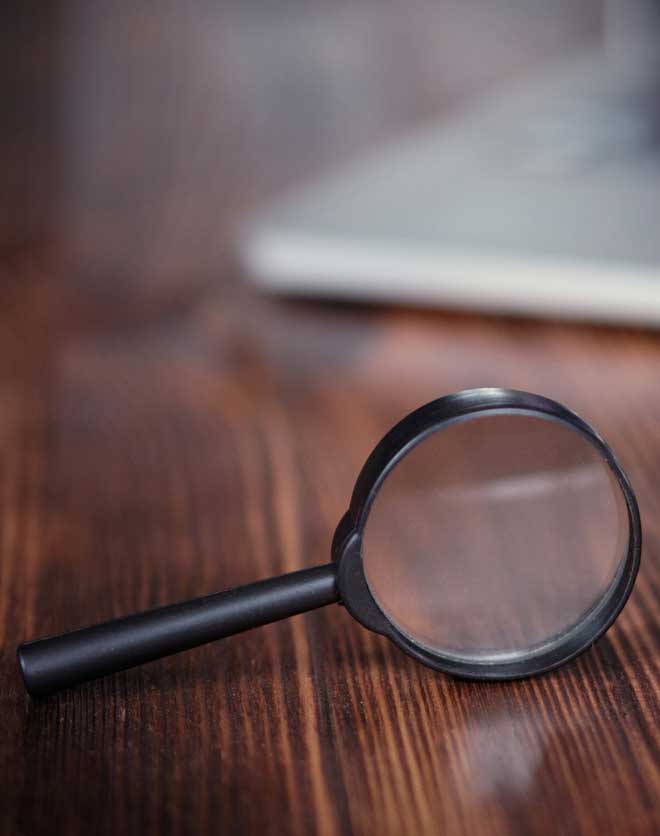Perhaps you’re just starting to build a digital repository, exploring recommendations for resolution, bit depth, and file format. Maybe you have digitization workflows already established, but you need additional technology, staff time, on-site services, or expertise to convert a particular collection.
At Backstage, we tailor our services to fit your needs. Whatever level of assistance you’re looking for in a digitization partner, we can work with you to accomplish your goals.
Our start-to-finish imaging and metadata options can help you through any stage of the digitization process:
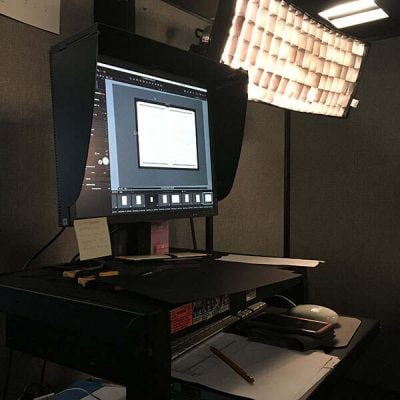
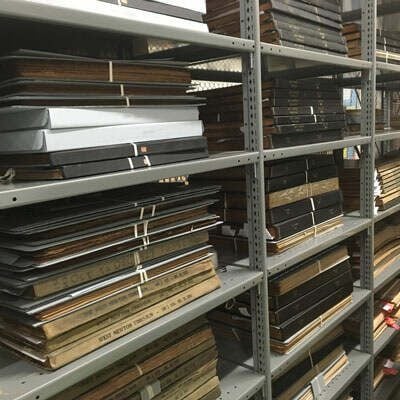
Backstage can create digital images from nearly any type of analog source materials, including:
If you don’t see your material type on the list, let us know and we can discuss the best way to digitize your materials.
Materials we receive are organized into our secure storage and inventory system. Each item is flagged with a barcode to track the chain of custody throughout its stay. Our technicians are trained in the proper handling of archival materials at all stages of the capture process.
Are you concerned about transporting your treasured collections safely? We can advise your staff on appropriate packing to minimize risk during transit and, for many sites, our team can pick up or deliver original materials via our dedicated van service. There are art shippers and other specialized freight carriers we can recommend as well. And, in situations where a collection simply cannot travel, we can come to you for on-site digitization.
Digitization is always performed to the specifications agreed upon, be those specific to your institution or a national guideline. We are also happy to make recommendations based on your material types and FADGI guidelines.
Prior to each digital capture session, we benchmark our equipment for image quality using industry-standard tools and guidelines. In addition to calibrating our cameras and scanners, Backstage utilizes high-resolution digital monitors designed for color-critical graphic arts applications. Monitors are calibrated to meet ISO 12646 specifications. The digital studio is designed to maintain color neutrality and light levels appropriate for archival processing work. During capture, technicians will note any anomalies found while scanning. Your Project Manager is alerted to any defects or problems in your original materials and will reach out to you to determine a plan of action as needed.
Communication is essential for successful collaboration. You’ll receive a weekly update throughout your project from your digitization team, keeping you informed of our status, next steps, and due dates. We’re always a phone call or e-mail away if you have questions.
Quality control is vital to digitization at all stages. This includes employee training, material handling – to include hand-placing each item for the camera – and a separate in-depth review of the image files. Cultural heritage collections can only be preserved safely, correctly, when we put ‘quality’ at the heart of our workflow.
Prior to capture, we benchmark our equipment for image and color quality using the most up-to-date tools and guidelines in the industry. We do this at the start of every shift and new project, verifying that lenses are focused and cameras have the correct settings to generate high-fidelity digital reproductions. These target images can be included in your digital file delivery so that you can be assured you are getting the best quality for your digital collection.
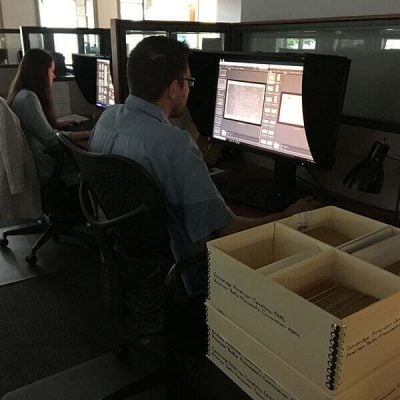
Our approach includes a visual inspection of the images performed by a team of technicians separate from our camera operators. The quality assurance team will review 100% of your images to ensure your files have the correct technical specifications and images are not cut off, obstructed, or out of focus. Images with errors are corrected, and items can be rescanned as needed while materials are still in process, making sure we have the best capture possible.
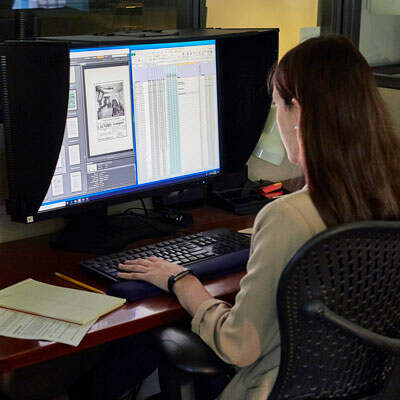
We talk a lot about FADGI, NARA M-19-21, NDNP, NDSA and other digital image and metadata standards. That’s because they are important to us. We know your institution has standards that are important to you as well. As we plan your project together, we can make sure that your preferred standards are a part of your Backstage digitization project.
Because of our longstanding contracts with US federal libraries, our studios are designed to deliver FADGI 3-star and 4-star compliance. These standards will serve as a framework for the National Archives and Records Administration (NARA) as it finalizes standards for compliance with M-19-21 records management.
Whether your project requires strict adherence to these guidelines or not, many of the benefits of the FADGI standards carry over in the layout of our workstations and the training of our technicians.
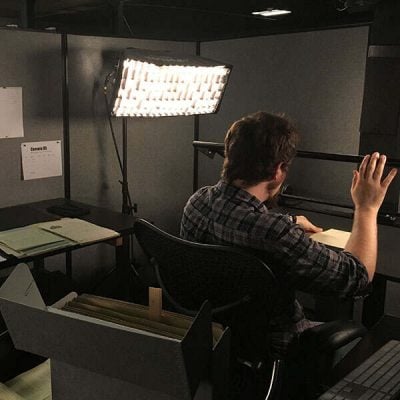
Do you have a collection to digitize that can’t be sent out? We’re prepared to bring digital imaging to your doorstep. At Backstage, we don’t believe in a one-size-fits-all approach to anything. We recognize that a digitization project means dealing with your special collections, and we know they’re called special for a reason.
We’ll collaborate with you to craft an on-site project plan to meet the requirements of your materials, policies, timeframes, and budget. We’ll bring the equipment and personnel to process short-term engagements for specific collections or set up semi-permanent digitization studios to manage ongoing workflows.
Regardless of the scale and scope of your plans, we’re committed to producing the archival quality digital images that your special collections deserve.
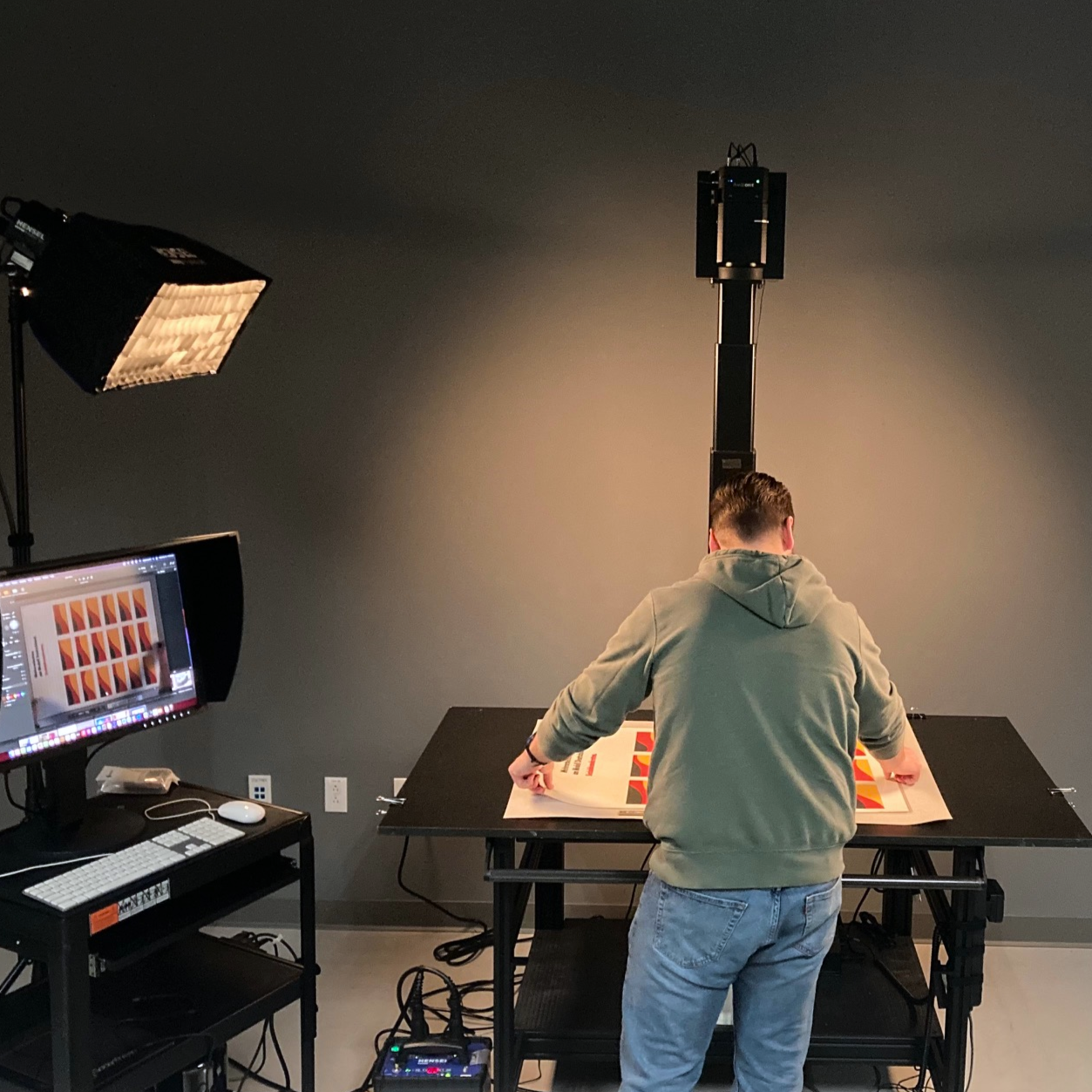
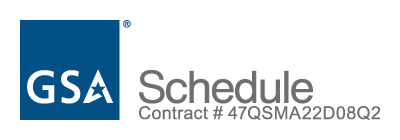
Backstage Library Works is a multiple award schedule (MAS) contractor with GSA schedules for digitization and related inventory and collection preparation services. You can find us under contract number 47QSMA22D08Q2.
Learn more about Backstage’s support for your digital migration.
Read about our lifetime guarantee.
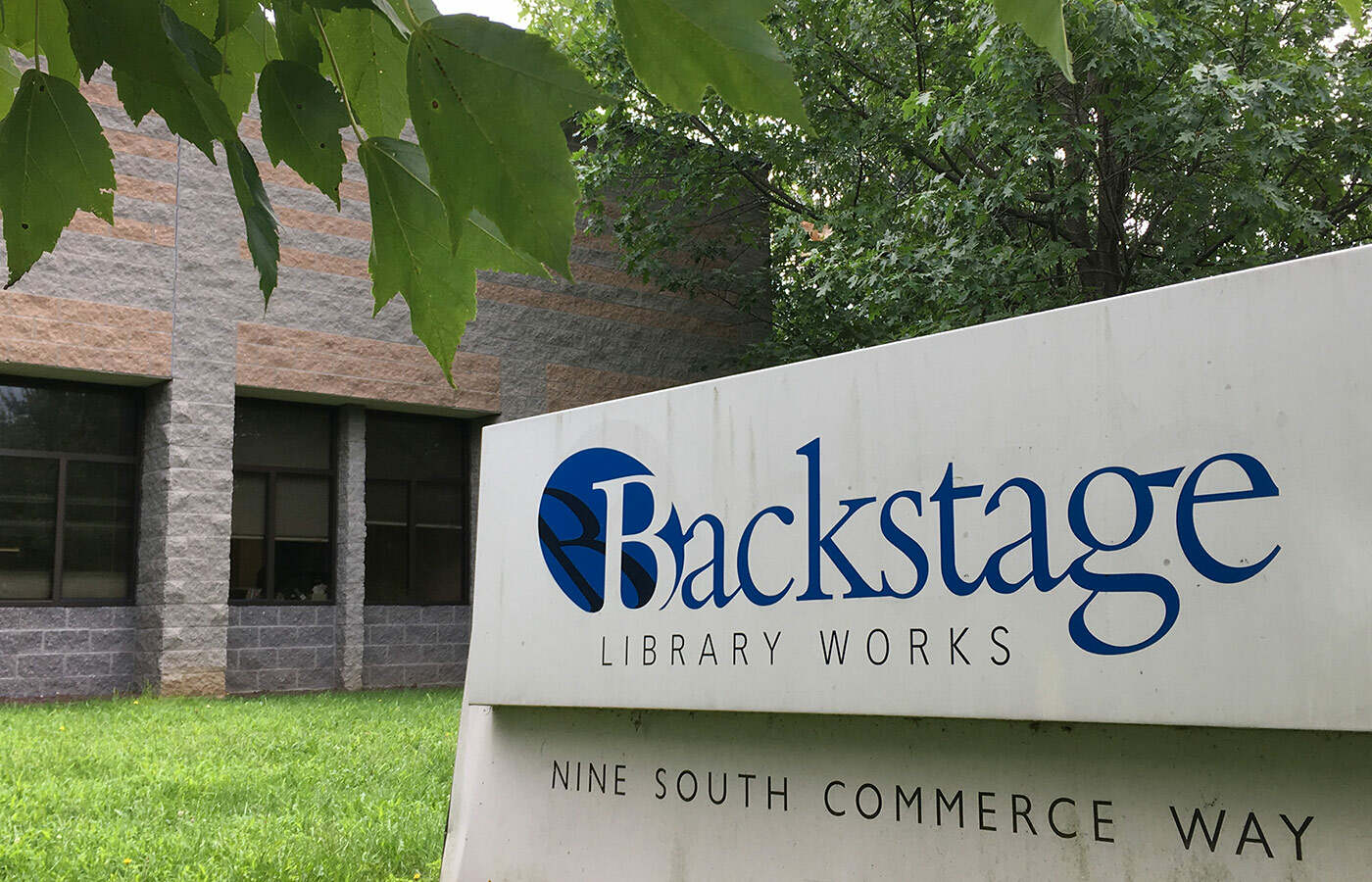
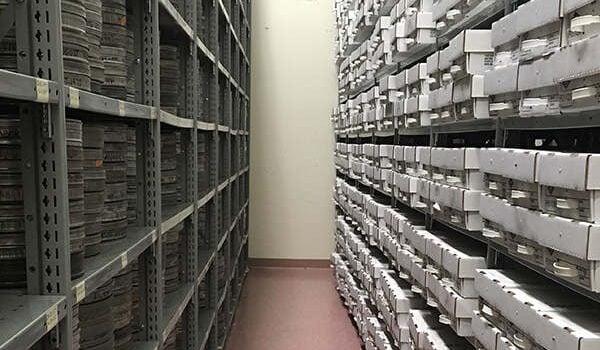
The New-York Historical Society wanted to create and encode location metadata for a digitized collection of subway construction photographs...

High-quality, cost-effective professional services that preserve, organize, describe, and connect you to the world’s knowledge
Monday – Friday:
8:00 a.m. to 7:00 p.m. EST
Saturday – Sunday:
Closed
Search our site below
